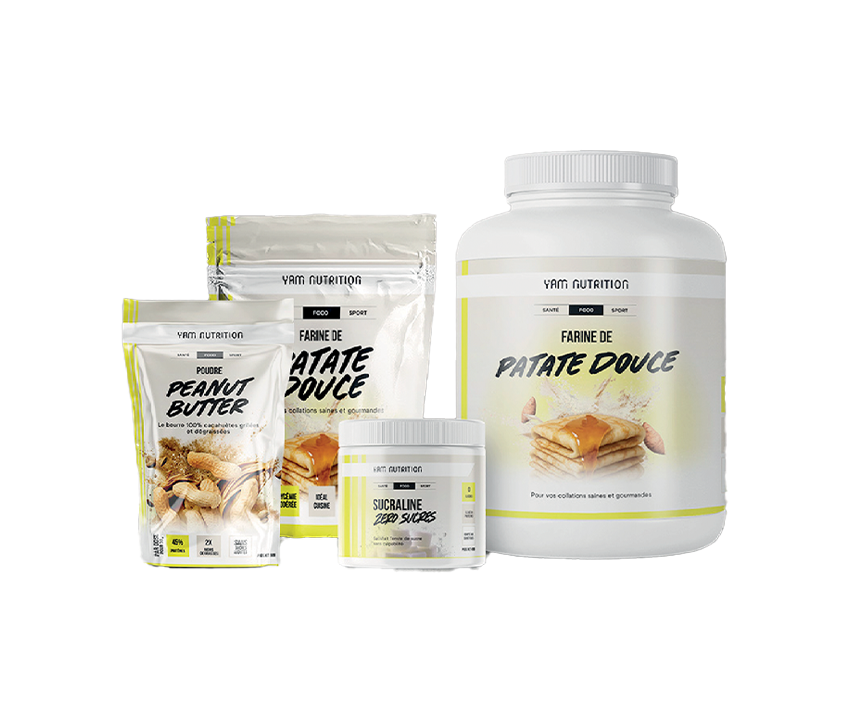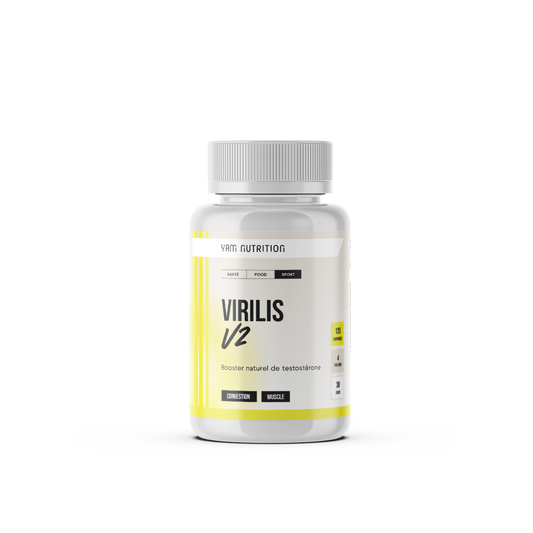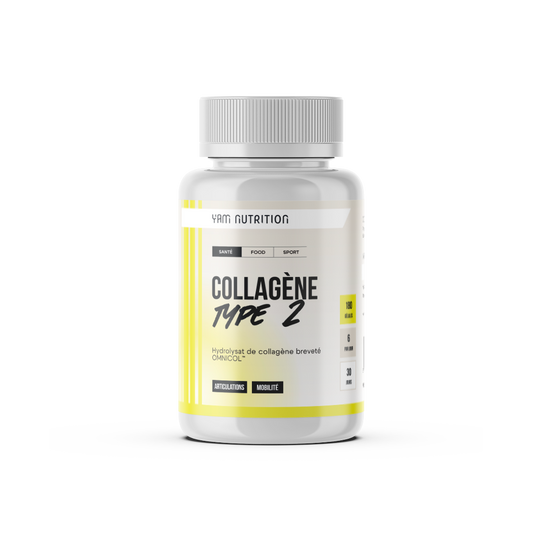Sarcopenia in the elderly: what protein intake is necessary?

Sommaire
- Aging is different for each individual, sarcopenia does not affect everyone in the same way
- Sports nutrition and protein levels help to delay sarcopenia far in time
- Androgen hormones fix muscle proteins but they are less present with age...
- Antioxidants become increasingly important as we age
- Splanchnic retention limits the presence of amino acids in the blood and then in your muscles
- Some amino acids become more important than others with advancing age.
While aging is a condition that affects each and every one of us, not everyone ages at the same rate or in the same way. Biologically, however, there are certain constants common to all individuals. In humans, as in any biological being, energy generation Permanent cellular aging eventually leads to physiological disorders, metabolic waste that becomes difficult to evacuate, genetic errors and other problems of assimilation of amino acids and insufficient protein synthesis. Indeed, cellular and organic aging leads to a reduced synthesis of proteins necessary for the normal functioning of our body. We call this phenomenon sarcopenia.
The energy drink 2.5x more caffeinated than average The natural testosterone booster The ultimate pre-workout booster for a killer boost
YAM Energy Drink
Sale price
From 2,50 €
Virilis V2
29,90 €
Sale price
29,90 €
Bombi Preworkout
Sale price
49,90 €
However, aging does not affect everyone in the same way. On this point, scientific research has proven that sedentary see their body and physical capacity deteriorate much faster than athletes, endurance or bodybuilding. With this article, we will offer you a brief presentation of what we call sarcopenia and how to deal with it, in particular through physical activity and dietary intake Reasoned, especially in protein. Aging relies on complex mechanisms and processes that we can't all cover in one article. However, there are some commonplaces and rules of common sense in food that we can highlight here.
Aging is different for each individual, sarcopenia does not affect everyone in the same way
Physiologically, it is worth remembering that proteins are essential for multiple organic functions. One of their functions is to ensure the renewal of cellular tissues, organs and muscles. This is a reality for muscle proteins as well as structural proteins such as collagen and elastin, for example. However, over time, this function becomes more difficult. The decline in androgen hormones, the accumulation of toxins and metabolic waste, lack of energy, or repeated infections and various diseases ultimately reduce the body's ability to maintain itself perfectly. From there, aging eventually takes over.
While aging makes little sense at 30 or 40, organic and cellular aging begins to mean something 20 years later. Fatigue increases, energy decreases, and physical fitness gradually diminishes. However, if you are an athlete, the effects of aging will be felt much later. If you do a strength sport like bodybuilding, you will maintain a higher muscle mass for longer. This is a very serious advantage over endurance sports because muscle is synonymous with longevity. And as you know, sarcopenia concerns the loss of muscle mass with age. And to tell the truth, bodybuilders are relatively unaffected by this problem until at least 60, especially if they continue to train and stick to a sports nutrition intelligent.
Sports nutrition and protein levels help to delay sarcopenia far in time
Sarcopenia is characterized by a loss of muscle tissue due to age, but this loss can be more or less reduced, depending on diet and the practice of resistance exercises (strength sports). The first factor inhibiting sarcopenia is characterized by the amount of proteins that you consume each day. While an average athlete can get by with one gram per kilo of body weight of protein per day, a bodybuilder will consume 1.5 to 1.8 g/day per kilo of body mass. In fact, this is a fairly common average in the world of muscle. However, this amount should even increase after the age of 50 to around 2 to 2.5 g/day/kg of dietary protein. Thus, the older you get, the greater your quota of protein will need to be high. From there, you might wonder why this amount of protein increases with age. In fact, there are several reasons for this...
Androgen hormones fix muscle proteins but they are less present with age...
The first of these is a hormonal reason. At 20, your endocrine glands release a lot of androgen hormones like testosterone and growth hormone. In this case, the assimilation and fixation of proteins is maximal. 20 to 25 grams of protein will be fully assimilated, whereas you will need 40 at the age of 45 and over. Science has demonstrated this fact for a very long time in numerous serious studies. Similarly, the body will experience more difficulty synthesizing collagen with age…
The reasons for this slowdown in hormonal metabolism are complex and multiple. This is precisely what we will explain below. From a general perspective, metabolic waste accumulates, organs begin to function less well, while the continued presence of free radicals and the damage they inflict on your cells and DNA becomes difficult to tolerate and reduce from a certain age. Overall, the body begins to experience difficulty repairing damaged organs and cells. Given the accumulation of free radicals, antioxidants then become as important as proteins in reducing the risk of sarcopenia.
Antioxidants become increasingly important as we age
The second reason will be directly and indirectly linked to the progressive degradation of the body and your cells. As we said, this implies the greater presence of metabolic waste and free radicals. In this case, an increased consumption of antioxidants with your proteins will stimulate their assimilation. Here too, scientific research has demonstrated this. In this case, a diet rich in fruits and vegetables, or with supplements rich in antioxidants (OPCs of Grape seeds , vitamin C, hydroxytyrosol, quercetin, lutein, lycopene, etc.), will allow you to naturally push your limits. Here, fresh vegetables and fruits should be consumed in abundance, favoring organic foods as much as possible. Fruits and vegetables such as apples, blueberries, carrots (rich in beta-carotene), tomatoes, cucumbers, broccoli, and many other vegetables can be eaten at will. However, avoid succumbing to the flashy marketing of “supernutrients” when the nutritional reality does not always correspond with the health claims of retailers.
Splanchnic retention limits the presence of amino acids in the blood and then in your muscles
The third reason is also linked to the aging of the organs and more specifically the intestine. Indeed, the intestines will use more and more amino acids for their own functioning, allowing less and less to pass into the bloodstream, then to the muscles. It is mainly for this reason that proteins become increasingly important with age. This process of “splanchnic extraction” may seem inevitable to you as the years go by. However, there are several interesting avenues to explore to limit the effects of sarcopenia, if not the phenomenon itself.
Some amino acids become more important than others with advancing age.
Obviously, we will be thinking here in terms of amino acids and no longer in terms of protein. Indeed, numerous studies prove to us that the citrulline passes the intestines intact while the others undergo very severe retention. Citrulline is all the more essential as it is the precursor of arginine, an anabolic amino acid par excellence. Another intermediate linked to the urea cycle (Citrulline > Arginine > Ornithine), ornithine precisely, has proven its positive influence on anabolism, particularly in its ketoglutarate or OKG form. Since we are talking about anabolism, let us add that an increased intake of Leucine will also be able to stimulate anabolism at all ages, as you know. Another particularly interesting piece of data put forward by science is the wisteria is an amino acid that becomes increasingly important as we age. Most studies tend to affirm that glycine positively influences muscle growth as we age…
Other elements are beginning to be brought to light by scientific research, particularly on the importance of NAD+ or certain proteins like Klotho or the role of telomerase for example. The fact remains that we already have serious assets to continue to build mass and strength, even as the years accumulate. Let's bet that the future holds the best for us and that we will very soon be able to annihilate sarcopenia, for the sedentary and especially for those who love muscle!
YAM Nutrition
Eric MALLET
Spécialiste en Nutrition Sportive







